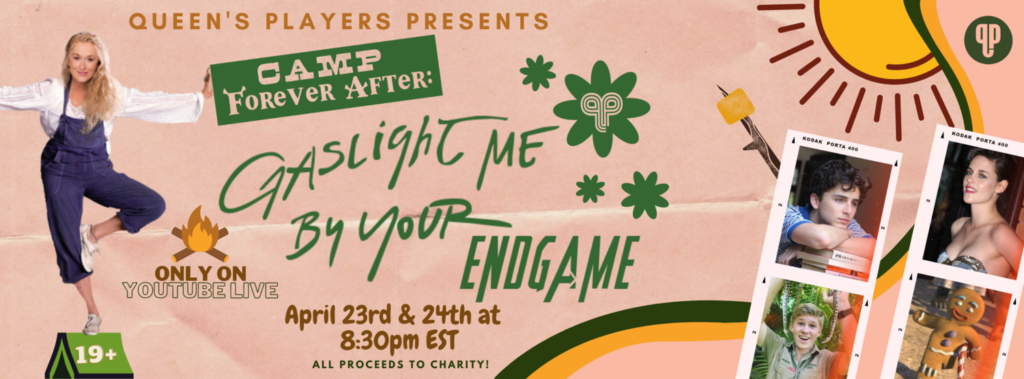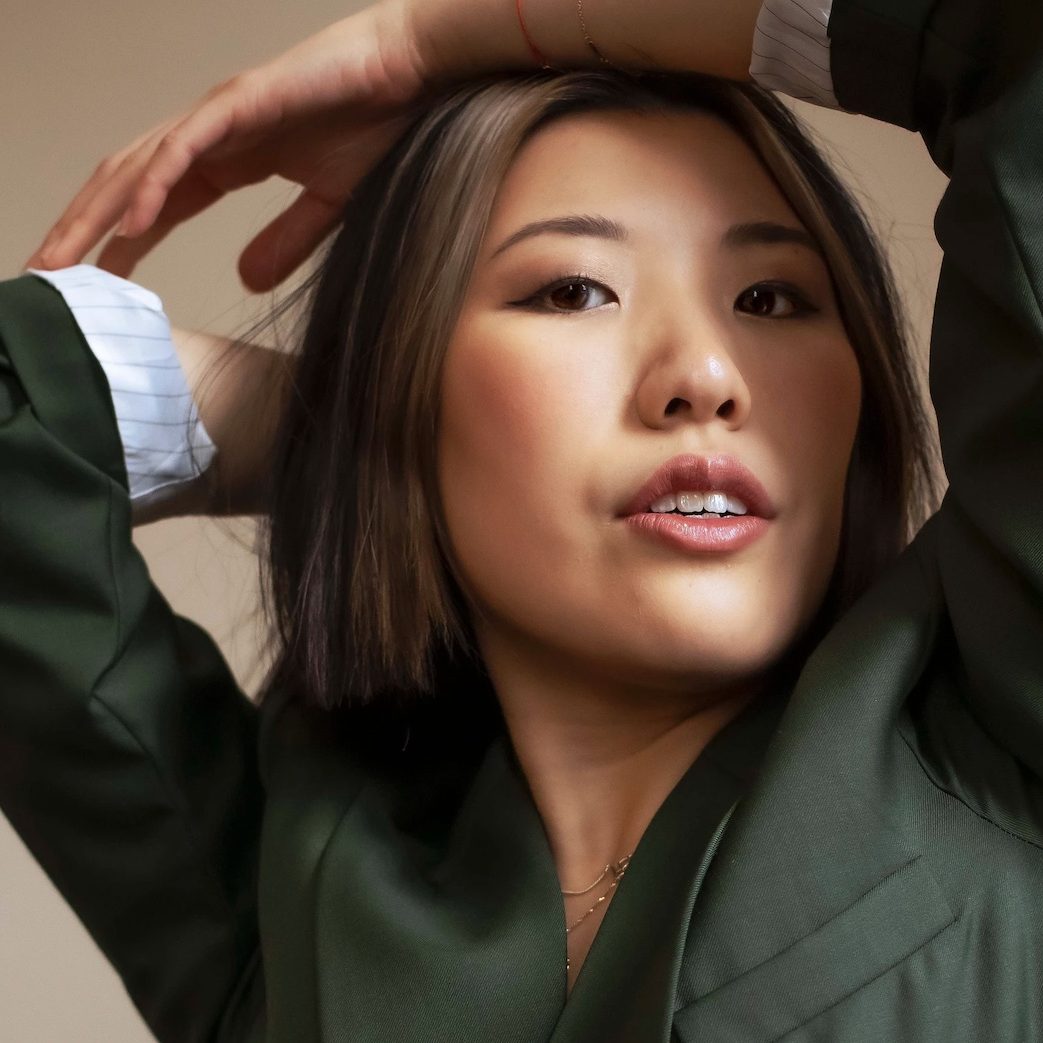Queen’s Players makes Cultural Studies scholars S[CREAM]!

“So what are you watching right now?”
A year into the pandemic, the odds you haven’t returned to an old movie or television show for comfort are slim. And who could blame you?
Turn on any device, log onto any platform, and you will immediately feel how saturated digital content has become. It’s near impossible to escape the overwhelming monotony of endless scrolling, nostalgia culture, and algorithms predicting your tastes before you even develop them. Any cultural conversation now feels completely out of control, but Queen’s Players has curated a safe kind of chaos.
It shouldn’t be a surprise that the oldest student organization on Queen’s campus is rooted in laughter. The group continually orients itself towards the collective well-being and entertainment of life at the time, using both comedy and popular culture to keep people grounded during times of societal unease. Upon first glance, their third remotely-delivered show Camp Forever After: Gaslight Me by your Endgame! sounds like the same messy amalgamation of the recognizable icons we carry in our pockets. But this production is less about pop culture and more about the people who consume, produce, and remix those sentiments.
Whether in person or over Zoom, a Queen’s Players show could be described as a manic crossover episode that’s somehow also a karaoke flash-mob. Camp Forever After brings together a wide range of celebrities and a handful of recognizable stock and fictional characters to, you guessed it, summer camp. Incoming cast member Nicole Calvo explains that the setting reflects how an actual camp operates and allows these figures from various corners of the cultural consciousness to be thrown in the same space together. Fellow new performer Owen Boucher also notes that it offers more potential for conflict as the characters are stuck in the wilderness together.
The comradery established between the cast and crew underpins the entirety of the show and is a primary reason students continually return to the club. The script, music, choreography, video editing—every single component of the production was developed as a collective. As a platform, Zoom establishes a sort of etiquette in how the team interacts with each other and really develops their understanding of how to best be present with one another. The anonymity of Google Docs as a writing tool allows more nervous writers to contribute where they may have previously found difficult. Katie Pirie, the show’s director, suggests that relationships developed at camp mirror the experience of the show itself. She explains, “You get really close with people in a really short amount of time. You do everything together for a couple months and then you don’t see them until you do.”
But remote delivery has its limits. Members of the team have expressed a wish to interact with other teams they don’t necessarily get to interact with. Although the process has provided a sense of consistency and purpose, these students have lost the casual moments of engagement that would allow them to further connect with each other. Once the Zoom call ends, everyone is immediately gone. It’s been incredibly disorienting to move from a fun, collaborative environment to being alone again.
Comedy has always been used as a survival tactic, and especially today, pop culture exists as a beacon of communication with people on large scales from a distance. Netizens everywhere are able to identify recognizable images with some degree of essential absurdity and use them to create something even more absurd to create what we now understand as memes. As people cling to these points of reference, Queen’s Players aims to refract the familiar in all the ways today’s culture exists in a vacuum. Actor and writer Rayan Rahal explains, “I’ve always found that Players characters are at their funniest when they resemble they’re real life counterparts on a surface level, but their actual personalities are so divorced from the original versions just to kind of steer chaos.”
But what happens when comedy gets out of control? Humour is an increasingly necessary part of societal upheaval but it doesn’t diminish the severity of those conditions. In 2020, Queen’s Players hired their first Equity Director Sarah Van Drunen as a commitment to create a more inclusive and accessible space on campus. Part of this commitment includes diversity on all levels of the team, creating closed-captions for future shows, and establishing long-term partnerships with the organizations Queen’s Players supports with their donations funds. Van Drunen emphasizes the need for emotion for other clubs at Queen’s:
“Players has taught me not even where the line is, but how to conduct it. It’s impossible to navigate through this current climate and it not be personal to everyone in different ways. If those people want to share, I want to hear it. Players has also taught me that it’s okay not have complete control, but I’m here if they need anything. We have constant points for feedback, reflection, multiple channels for resources, but make it proactive! Make those accessible, but then hands off and let people do the job that they were hired to do. Just give everybody the opportunity, space, and the chance to see what they can do.”
Within this past year, the organization has certainly positioned itself as a distinct philanthropic body while maintaining their cult-classic entertainment style, raising $4200.69 during their last online show. Camp Forever After: Gaslight Me by your Endgame! runs April 23 and 24 at 8:30pm on Youtube Live and the donation link for the show found here.
Special thanks to Sarah Van Drunen, Phil Fernandez, Brock Jekill, Laura Deorksen, Nicole Calvo, Owen Boucher, Katie Pirie, Mattea Sharp, Nolan Armstrong, Patrick Iun, and Paul Smith for their insightful contributions to this article.
